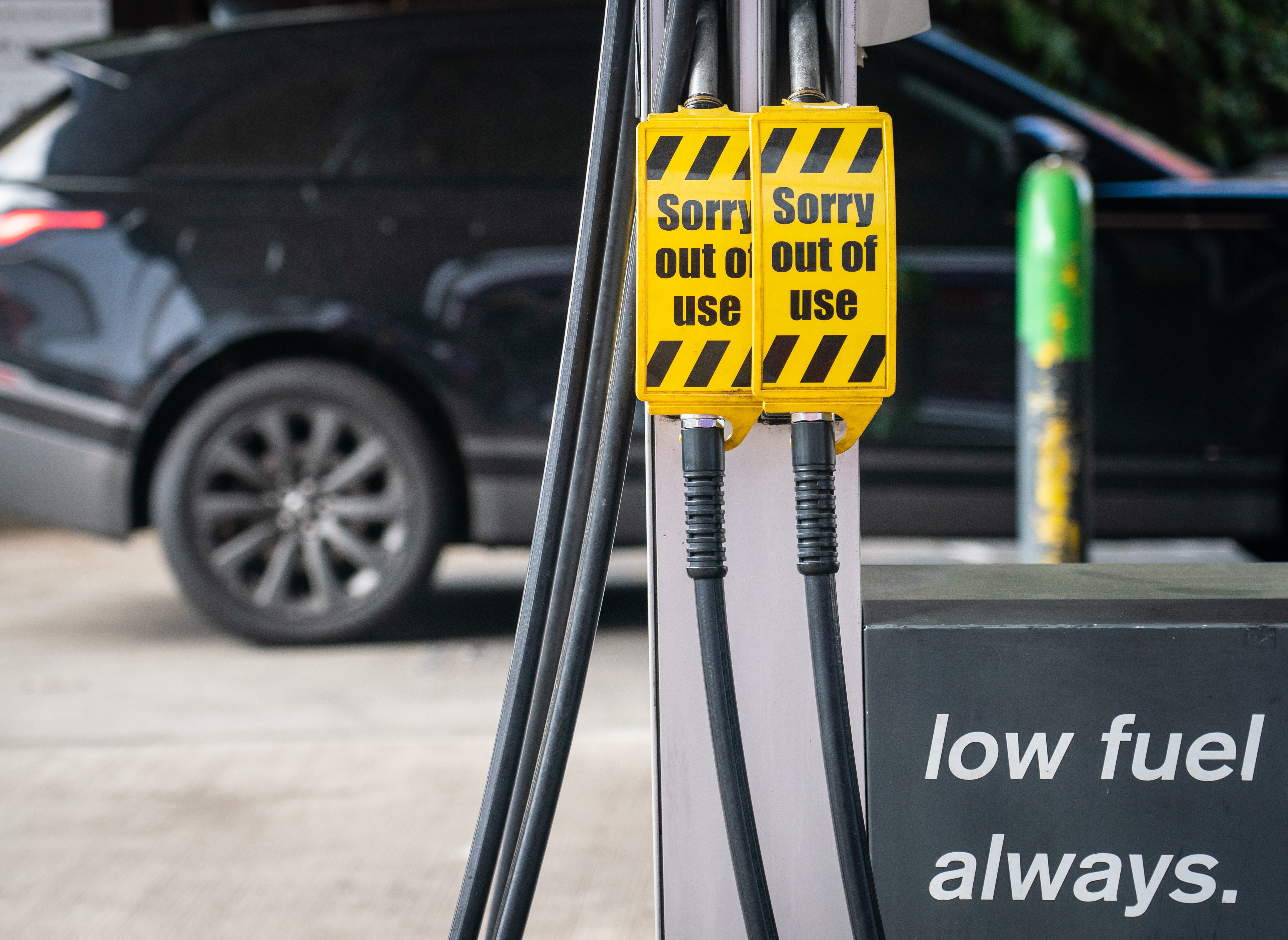Fuel retailers blame ‘inept prioritisation’ of deliveries for continued crisis
The Petrol Retailers Association said only 71% of filling stations in London and the South East have petrol and diesel.

Your support helps us to tell the story
From reproductive rights to climate change to Big Tech, The Independent is on the ground when the story is developing. Whether it's investigating the financials of Elon Musk's pro-Trump PAC or producing our latest documentary, 'The A Word', which shines a light on the American women fighting for reproductive rights, we know how important it is to parse out the facts from the messaging.
At such a critical moment in US history, we need reporters on the ground. Your donation allows us to keep sending journalists to speak to both sides of the story.
The Independent is trusted by Americans across the entire political spectrum. And unlike many other quality news outlets, we choose not to lock Americans out of our reporting and analysis with paywalls. We believe quality journalism should be available to everyone, paid for by those who can afford it.
Your support makes all the difference.Fuel retailers claim “inept prioritisation” of deliveries is to blame for continued shortages in London and the South East
Brian Madderson, chairman of the Petrol Retailers Association (PRA), said only 71% of filling stations in the region have both petrol and diesel compared with 90% in the rest of Britain.
He warned that fuel supplies are being sent to “the wrong parts of the country”.
The Government insisted “the situation is improving”.
Mr Madderson claimed independent retailers are being denied access to information from discussions between the Government, hauliers and oil companies.
“We do not know when the deliveries are arriving and we do not know how they are being prioritised,” he said.
“The return to normal fuel volumes continues to be blighted by the current inept prioritisation policy.”
Mr Madderson described the Government’s decision to suspend competition law to allow the fuel industry to share information as “a failed experiment”.
He added: “It is now time for the Government to step back, reimpose competition law, and restore market disciplines so that ordinary business incentives drive the fuel to the filling stations which need it.”
Figures from the Department for Business, Energy and Industrial Strategy (BEIS) show that filling station storage tanks in the South East – including London – were 16% full at the end of the day on Sunday, compared with 25% across the whole of Britain.
Average stock levels in Britain sank to 15% on Saturday September 25, the day after panic buying began.
Storage tanks were typically around 33% full before the crisis began.
On Friday September 24, fuel sales were up 80% compared with normal levels.
Sales remained “substantially above” average until the middle of the following week when they “began to trend back to normal levels”, the BEIS added.
RAC fuel spokesman Simon Williams said shortages have been “most keenly felt by smaller retailers who don’t tend to buy fuel as frequently”.
He added: “Following the recent rush on the pumps, the vast majority of retailers needed to replenish their stocks at the same time which put enormous stress on supply chains.”
A Government spokesman said: “We’ve taken immediate action to increase the supply of HGV drivers and relieve the pressure on petrol stations. The situation is improving with more stations getting more fuel.
“Thanks to interventions we have made – from temporarily exempting industry from competition laws, to the deployment of military tanker drivers – industry is directing fuel to where it is needed most, as quickly as possible.
“It’s important to stress there is no national shortage of fuel in the UK, and people should continue to buy fuel as normal.”